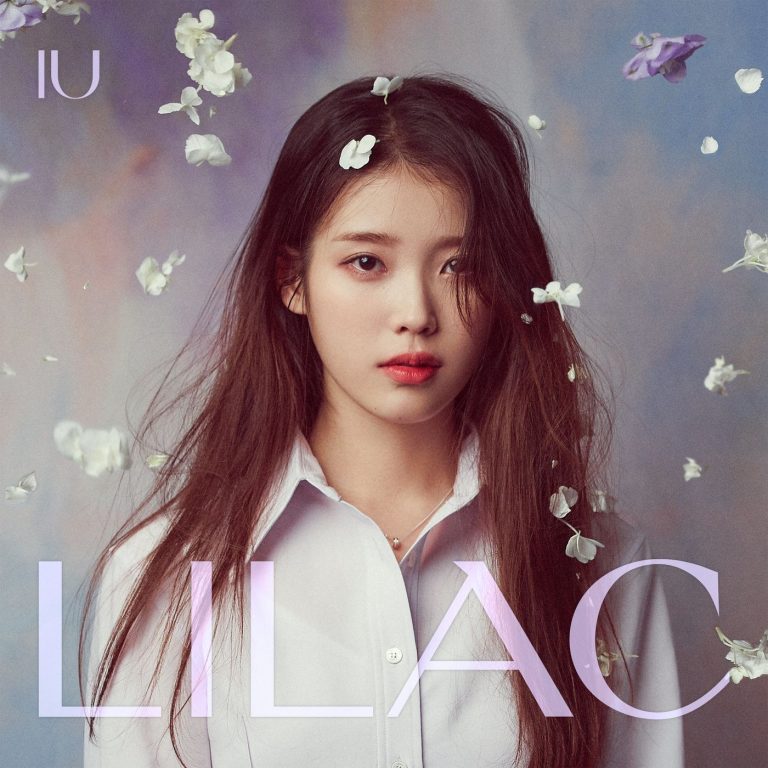What a difference four years can make. When Korean superstar IU, real name Lee Ji-Eun, released her last studio album Palette in 2017, she was somewhat on the defensive, coming back after needless controversy surrounding her (excellent) mini-album CHAT-SHIRE. In the time since, she’s suffered some personal tragedy, but it’s largely been in these years that she truly put the ‘super’ in her stardom. She’s starred in one of the best Korean dramas, the serious, even grim, My Mister, and one of the most popular, the fantastical Hotel del Luna; made an arty series of short films for Netflix with promising filmmakers; been signed up for seemingly just about every endorsement in Korea – you name it. Seriously, from medicine, to headphones, to water, to soju, to pizza, you’re likely to see IU’s smiling face on the box. All this from a young woman whom most labels were too shortsighted to want to sign in her teens.
Even with how K-pop has become worldwide, it’s hard to express the potential (and perils) of fame within South Korea itself to those who haven’t spent time in the country. The sleek, obsession-inducing nature of the genre itself, the culture’s fascination with trends and ubiquity, and the small size of the nation itself all blend to build a perfect storm of all-in-one stardom. The possibility for a star of IU’s stature in, for example, America is just about impossible; there are simply too many regional biases. Meanwhile, walking down a street in either Busan or Seoul, you’re likely to encounter a different IU song playing in every shop for a block. It’s all-encompassing.
LILAC, IU’s fifth studio album, is the first album of her career to reckon with (and enjoy) this level of attention, fame, and, to be frank, absolute power. It makes sense, then, that she’s feeling bold and pursuing different goals, and presenting more different sounds than ever before.
For one thing, and this is far from an insult, she’s more aware than ever for the potential of her music as product. Where IU’s work in the past has often reveled in quieter, simpler moments between hits, here, everything is maximalized. Fully aware of the legacy she’s already built, and the potential for far more, suffice to say she didn’t come to play. Known for producing her own music, and often largely self-composing her self-written songs, Lee is something of a pop savant, but for LILAC she sought out numerous collaborators, aware of the different avenues within each song she could pursue with the help of others.
This level of collaboration clearly proved a breath of fresh air for her, with much of the music on LILAC feeling weightless and playful, as if a great exhalation from her struggles and losses. Naturally, this isn’t to say IU would ever take the backseat in regards to her music, simply that she’s come to redefine her role as producer to more of a curator, along with creator.
With the help of these varying constructive voices, IU delves into a sound on LILAC that is at once varied and cohesive. It never strays too far from what she knowingly calls “the IU sound,” but does manage to dash into just about as many disparate corridors as possible on its journey. More than ever, she leans into the sheen and glee of K-pop production, all while looking to both the 80s and present sounds for inspiration.
“Hi spring bye” recalls (of all things) a peak late-period Genesis ballad, while lead single “Celebrity” tugs at the fringes of Hudson Mohawke. “Empty Cup” wouldn’t sound out of place on a softer reimagining of Rihanna’s Anti, and “Troll” boasts a beat so confident and immediate that American rappers would look at guest DEAN with envy of his placement. “Ah Puh”, an easy highlight, revels in cocky sarcasm blended with exhaustion. “My Sea”, meanwhile, truly swells, taking full advantage of an epic choir in its closing. Hell, the strange, filtered background vocals of closer “Epilogue” don’t sound too far off from the worlds created by The Caretaker. The ambition and curiosity on display here are endless, and above it all her gorgeous, famously soft voice reigns supreme. LILAC manages to breeze through worlds explored by the singer in her past, as well as entering waters previously unknown.
There’s plenty of reason for this duality. Having been active as a singer since the age of 15, and as she closes in on her (in Korean years) 30s, LILAC is intended to both reflect on her 20s and bid them farewell. It’s an album of rumination, prideful bliss tempered by melancholy, and, above all, acceptance. As she inevitably looks toward the future, she’s invited us into the room with her. She is both spectator and the spectated, the show is both pure performance and genuine, even fragile intimacy. It’s a pleasant stay, and, more than anything, will you leave you hoping she’ll invite you back.

